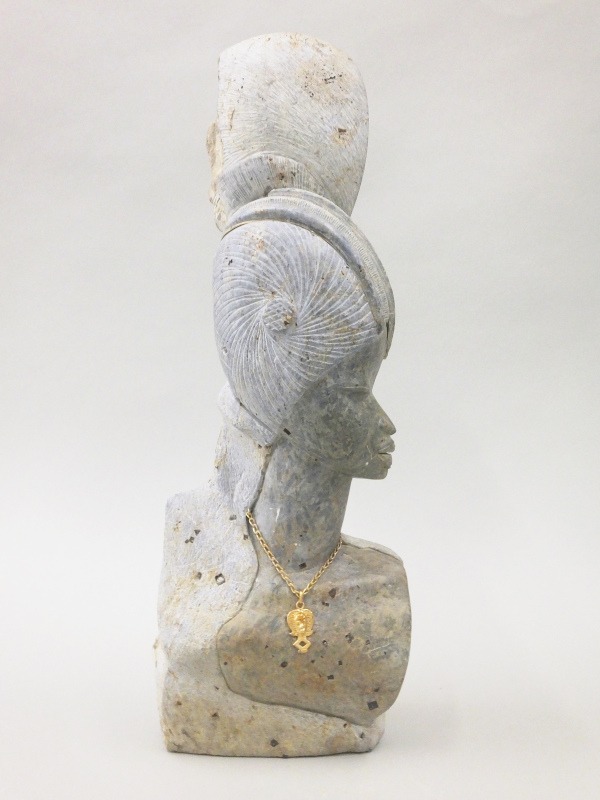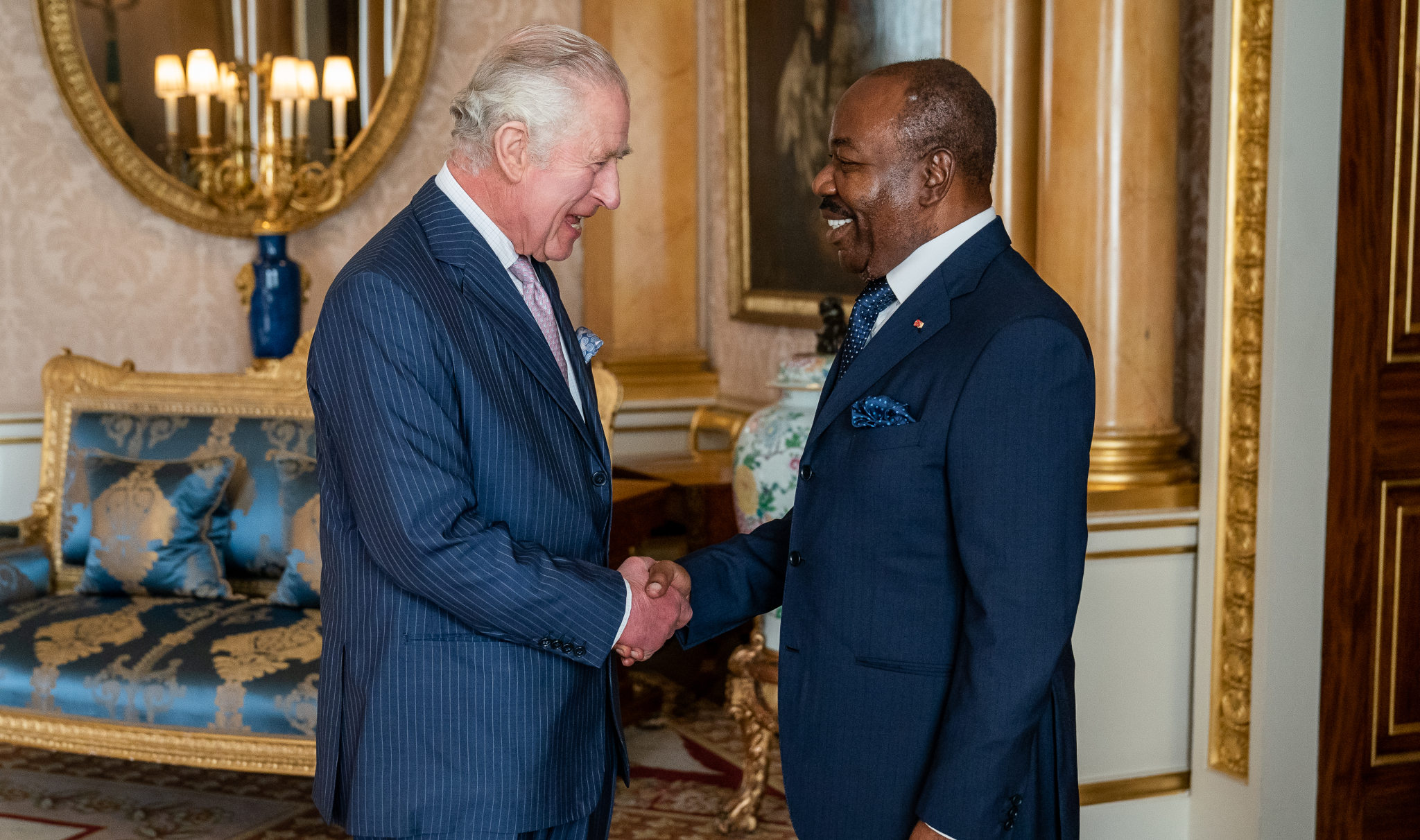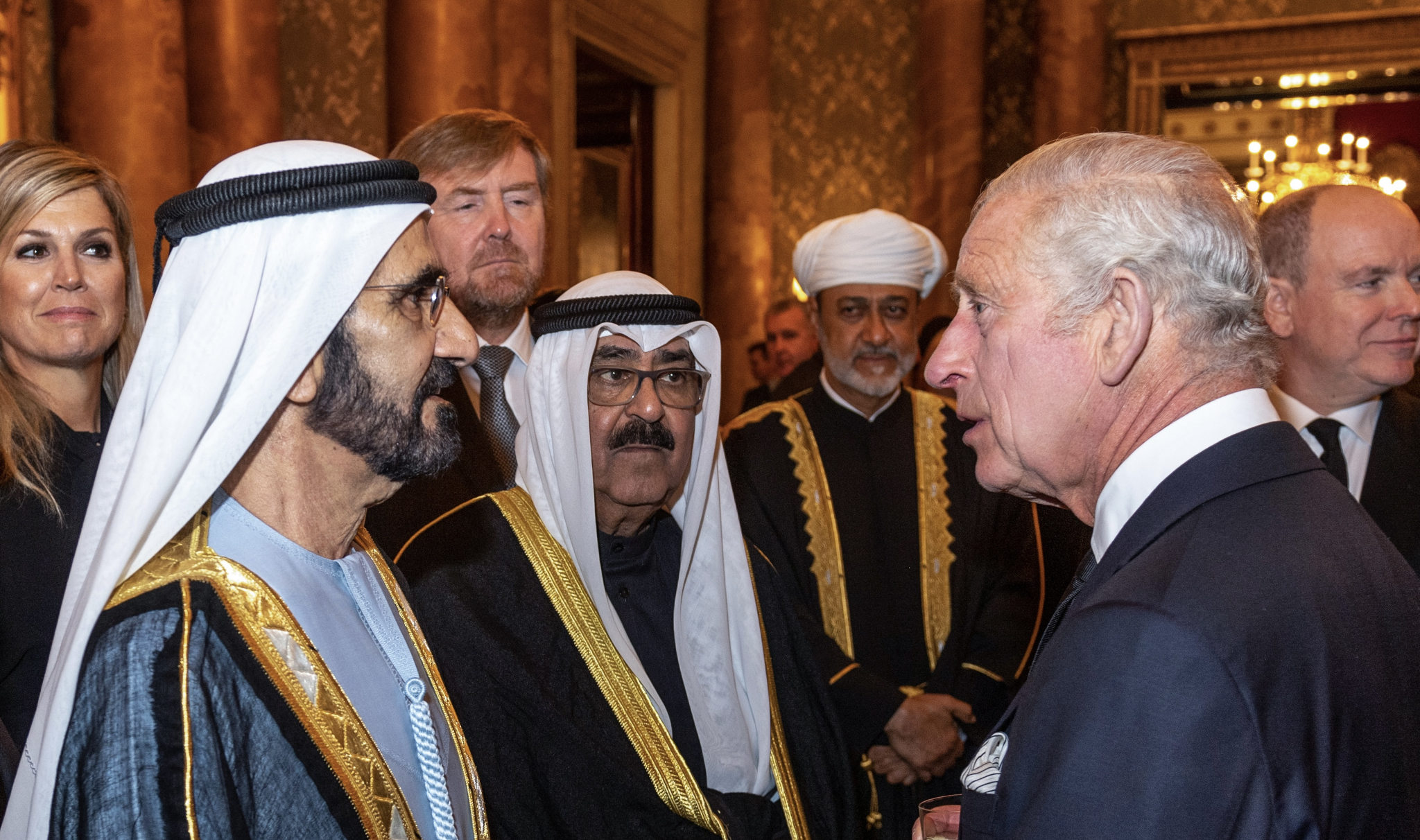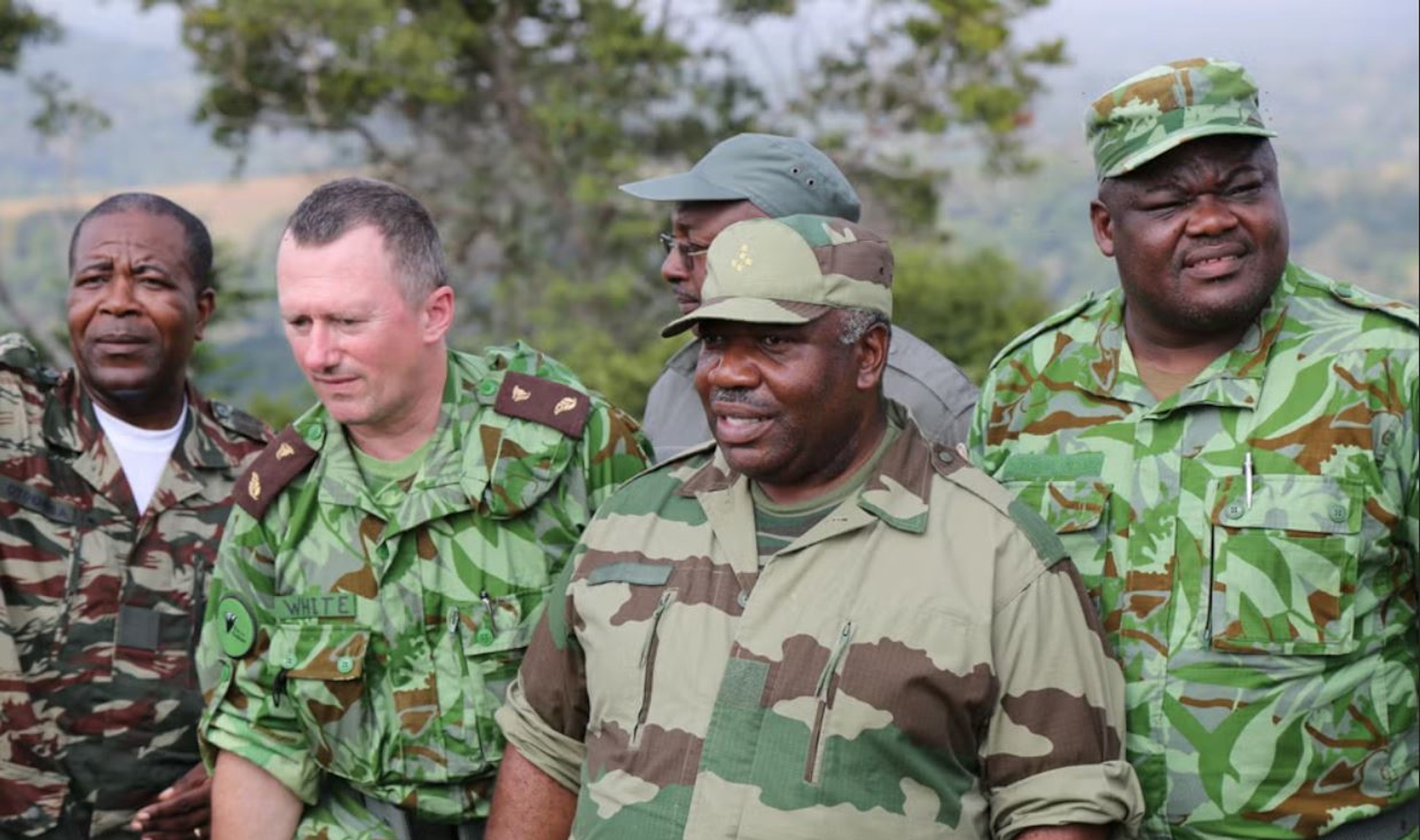British royals held at least 14 encounters with Gabon’s autocratic rulers, research by Declassified UK has found.
The sessions became more frequent shortly before Queen Elizabeth’s death, as Charles grew closer to Gabon’s president Ali Bongo.
Both men share a passion for the environment, which appears to have outweighed any concern about embezzlement or election fraud in the west African state.
Ali Bongo and his father Omar ruled oil-rich Gabon from 1967 until a military coup rocked Libreville last week.
Despite being a former French colony, the luxury-loving Bongos repeatedly sought alliances with Britain’s elite.
Their special advisers have included Dominic Sudnik – a veteran of the disgraced London public relations firm Bell Pottinger – who worked in Gabon until earlier this year.
‘Praetorian guard’
But efforts to forge links with the UK go back as far as 1970, when Omar Bongo met Queen Elizabeth at Buckingham Palace and gave her a black beaded helmet as a gift.
She saw him there again in 1980, months after Omar won Gabon’s presidential elections with an impressive 100% of the vote.
Soon after, in 1983, his son Ali met a retired British army major at the Hilton Hotel in London where he tried to recruit 500 Gurkhas as a “praetorian guard”, a file found by Declassified reveals.
Britain’s Foreign Office nixed the idea, fearing it would jeopardise the UK military’s own supply of Nepalese mercenaries.
Despite this setback, the Bongos continued to admire Britain and by the late 1980s even wanted to form their own monarchy, with Ali as heir to the throne – a suggestion laughed off by French president Jacques Chirac.
‘Marred by irregularities’
Then in 1999, the Queen’s husband Prince Philip travelled to Gabon where he had lunch with Omar Bongo at the presidential palace in Libreville, receiving a sculpture of a woman’s head and a gold necklace.
It came three months after another rigged election in which the president had allegedly sent commandos to try to assassinate the main opposition candidate.
The US State Department said the election was “marred by irregularities that generally favoured the incumbent, including incomplete and inaccurate electoral lists and the use of false documents to cast votes.”
Omar would remain in power for another two decades until his death in 2009 when Ali took over. Elections ensued which saw protesters tear gassed and allegations of ballot rigging.
This did not deter Prince Charles from meeting Ali Bongo at Clarence House in 2011.

Greenwashing
Since then, meetings between the Windsors and the Bongos have taken place at the rate of almost one a year, with princes Andrew, William and Harry present on some occasions.
These encounters continued even after another sham poll in 2016 which saw opposition supporters gunned down and mounting concerns about embezzlement.
Prince William was content to meet Ali Bongo at Buckingham Palace in 2018, when he was joined by Lee White, a British professor.
White was running Gabon’s national parks agency – a quasi-military force which has received UK and US military training in partnership with the Prince Charles Trust.
It is a powerful agency in Gabon which has some of the world’s largest forests and elephant populations, which are at risk from poachers and illegal logging.
Bongo promoted Professor White to his cabinet in 2019, and with him as environment minister they set up giant carbon credit schemes to tackle climate change.
Yet critics accuse them of greenwashing Bongo’s authoritarianism. The Rainforest Foundation UK says Gabon’s issue of 90 million carbon credits is “likely worthless” and does “not appear to represent any real reductions in carbon emissions or additional capture of carbon in its forests.”
Commonwealth membership
Charles appears to have been taken in by Gabon’s environment policy, bringing Bongo on a tour of Kew Gardens in 2021.
There has been a flurry of activity between the men since that trip. President Bongo was one of only a handful of African leaders to attend Queen Elizabeth’s funeral last September.
He was back at Buckingham Palace a month later where King Charles congratulated him on Gabon joining the Commonwealth.
Although this group is originally a club for Britain’s former colonies, in recent years successful efforts have been made to recruit ex-French territorites like Togo and Rwanda, none of which are particularly democratic.
Despite Ali’s ailing health following a stroke, he met Charles again this May, for a Commonwealth Heads of Government Meeting at Marlborough House.
The next day he was filmed struggling to walk with a stick at Charles’ coronation. Perhaps mindful of his ill health, Ali was dethroned in a coup led by his cousin just months later.
Now under house arrest, Ali has issued a video appeal calling on “all friends that we have all over the world…to make noise”.
The King of England is most likely among those international friends that Ali seeks to mobilise. Asked whether the pair have spoken since the coup, Buckingham Palace would not comment.
Norman Baker, a former government minister who wrote the book What The Royal Family Don’t Want You To Know, told Declassified that the Windsors were “very much more at home with other royals and unelected leaders around the world…even where they have blood on their hands.
He added: “It just underlines how out of step with modern British values our fossilised royal family is to be associating with dodgy characters like President Bongo. We really don’t want Charles banging the drum for Bongo.”




